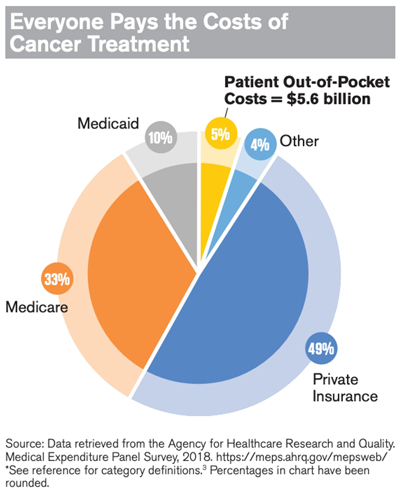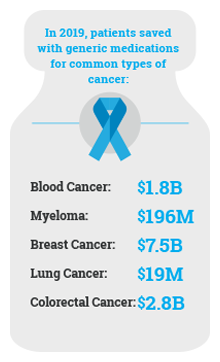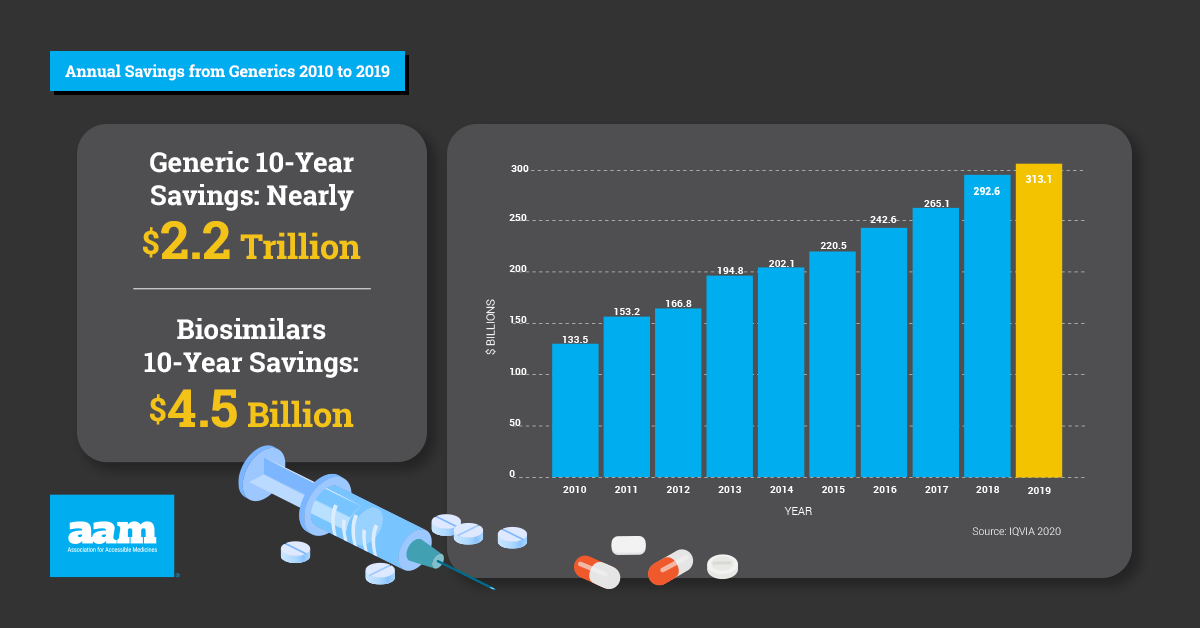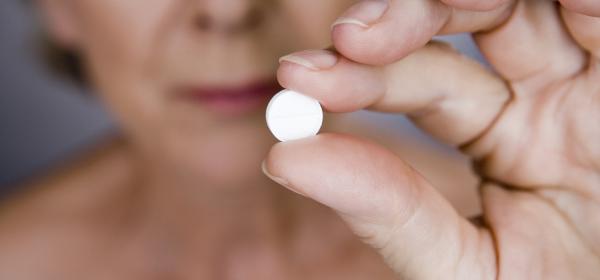In 2020, cancer claimed the lives of 600,000 Americans. According to the American Cancer Society (ACS CAN), there are approximately 1.7 million new cases of cancer in the United States each year, and more than 16.9 million Americans have a cancer history.
Today, on World Cancer Day, AAM and the Biosimilars Council pause to recognize the toll cancer takes on our nation. Generic and biosimilar medications that treat cancer are improving the lives of patients and easing the financial burden on patients and their families. An ACS CAN report confirmed that patients and health care payers can save money when patients use a generic or biosimilars alternative to a branded drug. Non-Hodgkin lymphoma patient Helen discussed her experience with taking a biosimilar in this video, “Taking a biosimilar is easy. I just go to the doctor’s, get a shot and leave. I didn’t have any major side effects. After everything I have been through it’s wonderful.”
The need for competitive alternatives in cancer medications is significant. In 2018, cancer patients in the U.S. paid $5.6 billion out of pocket for cancer treatments. Additionally, an estimated $183 billion of total U.S. health care spending went toward cancer-related health care in 2015. That number is projected to increase by 34% by 2030, which amounts to more than $246 billion.

These high costs (shown in the chart “Everyone Pays the Cost of Cancer Treatment”) are borne by those suffering with cancer, their families, employers, insurance providers and taxpayers through public programs like Medicare and Medicaid. ACS CAN has found that younger patients, people of color and those with less education are more likely to report intense financial hardship.
Patients rely on FDA-approved medications to treat cancer and cancer-related symptoms. Generics and biosimilars can offer much-needed treatments with substantial cost savings. In 2019, generic drugs saved U.S. patients $13.6 billion, including $7.5 billion, $2.8 billion and $1.8 billion for treatment of breast, colorectal and blood cancer, respectively. Generic savings over the past 10 years total $87.8 billion.
“I trust generics,” says Ariel, who used generic medicines when she fought Leukemia, says, “I’m living proof that they work.”

Just as generics offer significant savings over brand-name medicines, biosimilars—FDA-approved alternatives to brand-name biologics—hold the promise of savings and access to cutting-edge biologic treatments.
Biologic therapies play an important role in cancer treatment. Many biologics work by using a patient’s own immune system to fight cancer by targeting cancer cells for destruction by the immune system. Other biologics serve as supportive care to reduce the side effects from chemotherapy or radiation treatments. Biosimilars, clinically equivalent alternatives to biologics, are often more cost-effective biologic treatments.
Related Resources
- [AAM Report] Access & Savings 2020
- [Infographic] What is Biosimilars?
- [Blog] Biosimilars Can Help Cancer Patients
There are more than 25 FDA-approved biosimilars in the United States. Fourteen of those are approved for oncology. Biologics and biosimilars represent some of the most important treatments for cancer patients. Whether a patient and their doctor choose a biologic or a biosimilar, the FDA’s standards for drug approval ensure that no compromise has been made in the safety, efficacy, or quality of the product used for cancer care.
As access to these competitive treatment options improve, patients will be able to focus on their care, more than the cost it will take to get well. These medicines are already saving patients and the health care system billions of dollars. In one breast cancer scenario, a patient underwent drug therapy for many years. Where she was able to substitute one of her main drugs for a biosimilar version, her total costs were reduced by 21%. Beyond cancer care, greater access to generics and biosimilars will save the health care system nearly $2.2 trillion and $4.5 billion, respectively, over the next 10 years.

Ending cancer has been a priority of President Biden for years. Cancer groups expect the Biden White House to focus on oncology, build on his legacy and boost overall funding for biomedical research.
AAM and the Biosimilars Council support policies that increase patient access to generic and biosimilar medicines.
This includes:
- Encouraging access to lower-cost generics and biosimilars in Medicare Part D while capping patient out-of-pocket costs.
- Encouraging adoption of lower cost biosimilars through physician reimbursement and lower patient cost-sharing.
- Removing artificial barriers to the development and approval of generics and biosimilars.
Learn how you can help improve access to generics and biosimilars so that patients in the United States can get the treatment they need: https://accessiblemeds.org/advocacy
Originally published on the Biosimilars Council website.

By Erica Klinger, Senior Director, Marketing

